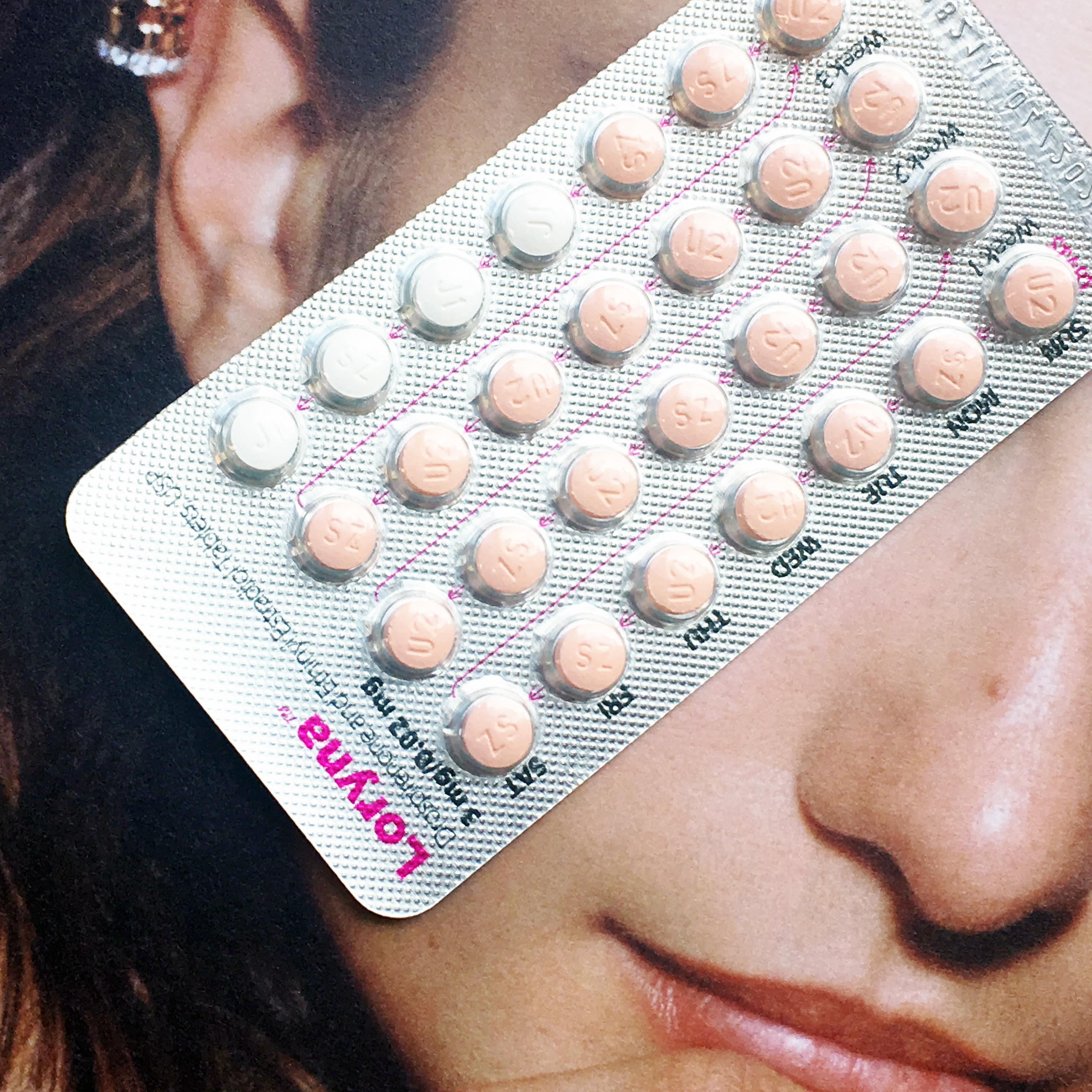Sometimes birth control is about sex, but it can also be about PCOS, endometriosis, and managing pain. And for many women—present company included—birth control can be a powerful tool used specifically to treat acne. But this is where it gets tricky. When it comes to using birth control to take on acne, there’s a set of complicated factors to sift through first. Factors that might require a blood test and a firm goodbye to the idea of using generics. And then there are the educated decisions you have to make: a pill with an appropriate amount of progestin, a pill that won’t leave you running for the toilet after every dose. If you want to use birth control to attack your acne, there are a few simple rules you should follow. As with a new pack, let’s start at the beginning, shall we?
Find your perfect fit
Finding the right birth control can feel like trial and error no matter your end goal—and using it to treat acne is its own process. Your doctor will consider several factors in choosing which birth control is right for you. Usually, the process starts with a blood test. In many cases, hormonal acne is caused when your body produces an excess of male hormones—a condition called hyperandrogenism. “If I suspect hyperandrogenism, then I would do a blood test,” says Dr. Stephanie McClellan, board-certified OB/GYN and Chief Medical Officer at Tia Clinic. She suggests checking for a vitamin D deficiency, adrenal gland malfunctions, and irregularities in your ovaries. Another element to consider? Stress. “These things are all real. You have to consider the patient, the patient’s history, and take a broader strategy to understanding the cause thoroughly.”
Because not all birth control will help treat acne
The pill works by combining the hormones estrogen and progestin to stop ovulation. Dr. McClellan points out that it’s the progestin type and dose that will determine which pill might help treat your acne. Progestins are more chemically similar to testosterone, an androgen that can make you break out more. One safe option is norgestimate—birth control pills with this kind of progestin, such as TriNessa, have low androgenic effects and are the only ones approved by the FDA to treat acne.
Beware of generics
Think about your favorite Food Network challenge. “If you and I were in a meatloaf competition, and we were told we had to have this much beef and this much pork, you still might decide to use breadcrumbs and an egg as a binder, and I could throw in a lot of vegetables—they could end up totally different,” says Dr. McClellan. “You have to look at generics the same way.” Not everyone is sensitive to the differences, but some women are. It takes about three months for your body to get used to a new pill—if they stop making your pill and you need to switch to a generic, you may feel it in this adjustment period.
Also, there may be side effects
Most birth control pills come with a long list of side effects, so you might need to do a little personal cost-benefit analysis when choosing one. My pill makes me nauseous, and that’s common—but there are other side effects you could experience that may not seem related to birth control at all. “It’s so frustrating,” says Courtney, 25, “because I felt awful, and at first I didn’t connect it to my birth control—I thought maybe I was allergic to something, or that I was sick. But I was willing to deal with side effects if it meant I would have clear skin.” Aubrey, 21, echoes this, saying, “I initially gained weight and had body aches, but I was willing to deal with it because my skin was getting better.” To minimize side effects, doctors will usually start you on a low-dose pill and see how your body responds. Dr. McClellan adds, “Why go above a really low dose if it’s working?”
If you stop taking the pill, your acne will probably come back
There are a lot of reasons why you may stop taking the pill—particularly if you feel the side effects are too overwhelming. Whatever the reason, when your body isn’t supplemented by synthetic hormones, it’ll go back to doing its own thing. “After three months”—the body’s adjustment period—“I was breaking out a lot more on my chin,” says Courtney. “I always had at least one or two active breakouts.” Carolina, 22, adds, “Because I took Accutane, I didn’t think acne would be a problem if I went off the pill. But I’ve been seeing way more hormonal acne—not as bad as when I was a teenager, but definitely noticeable.”
What else you can do
While topicals help, hormonal acne is triggered by an internal imbalance, so treating from the inside out makes sense. Dr. McClellan says that cutting out dairy is a good way to start. She notes, “Cow’s milk should have a balance between two proteins, A1 and A2. Now we primarily raise cows that have A1 milk, and that’s what triggers skin problems.” If you can’t give up your pizza, you might consider adding hormone-balancing herbs for a holistic approach. “I’ve been taking DIM, a supplement that helps your body process estrogen better, and I feel like that has definitely helped,” says Courtney. “I’ve also been taking evening primrose oil to help with inflammation, and ashwagandha for stress.” Talk to your doctor about being prescribed a different medication to help. “We use spironolactone," says Dr. McClellan—spiro (for short) stops breakouts by decreasing androgen production in the body. "We can also use antibiotics if we need, and very rarely, Accutane. I use that as a last resort.”
But remember, your health is always more important than clear skin
If your doctor tells you to stop taking birth control because it will negatively impact your health, listen! And, if the side effects of your birth control are uncomfortable and impacting your day-to-day, you need to consider either switching pills or going off them altogether. “I was definitely willing to deal with side effects if it meant I would have clear skin, but now it just doesn’t seem worth it,” says Courtney. “I don’t want to have to stay home from work because my birth control made me sick.” It’s scary to give up something that seems like a miracle solution to hormonal acne. But being open with both your doctor and yourself about how you’re feeling is always the best route.
—Ali Oshinky
Photo via ITG

